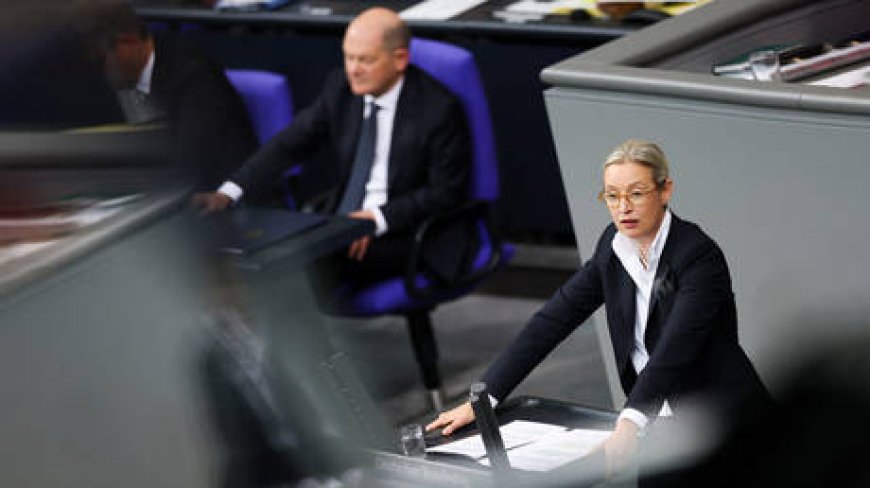German right-wing chancellor candidate tops poll – Bild
AfD leader Alice Weidel has the support of 24% of those surveyed, the newspaper has reported Read Full Article at RT.com

AfD leader Alice Weidel has the support of 24% of those surveyed, the newspaper has reported
The co-leader of the right-wing AfD (Alternative for Germany) party, Alice Weidel, is ahead of her rivals in the campaign to become the next chancellor, according to the latest survey conducted by the INSA polling institute for Bild.
The results of the poll, published by the tabloid newspaper on Sunday, showed that Weidel has the support of 24% of respondents, putting her ahead of the leader of Germany’s Christian Democratic Union (CDU), Friedrich Merz, who received 20%.
German Chancellor Olaf Scholz, who represents the Social Democratic Party (SPD), was reportedly backed by 15% of respondents. His coalition partner and Green Party leader, Robert Habeck, was favored by 14%.
The AfD named Weidel, 45, as its first chancellor candidate on December 7, setting out the bid for power ahead of snap elections scheduled for February 23. Weidel is due to be confirmed as the AfD’s nominee at a party conference next month.
In an interview with Bloomberg last week, Weidel accused the EU of destroying the German auto industry, the country’s economic pillar, and proposed winding back the bloc to a free-trade zone.
Earlier this month, the AfD stated in its draft election manifesto that Germany should leave the bloc and the euro in Brexit-like fashion, calling for a referendum on the issue.
READ MORE: German right-wing leader questions NATO membership
AfD membership has swelled by 50% to about 50,600 over the past year, the party’s spokesperson told Reuters earlier his month. That number, however, only represents about 14% of the membership of Germany’s biggest parties, the CDU/CSU conservative bloc and the SPD.
In recent years, right-wing, anti-immigration parties have gained traction across the EU, coming to power in Croatia, the Czech Republic, Finland, Hungary, Italy, the Netherlands, and Slovakia.


























































